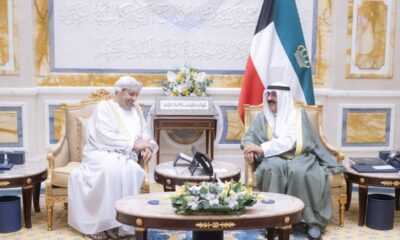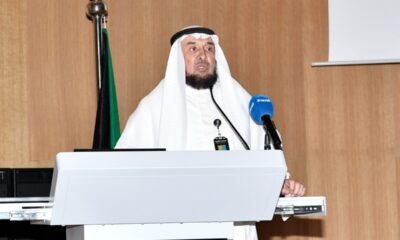KUWAIT: In continuation of its leading and responsible efforts in the field of sustainability, National Bank of Kuwait was the diamond sponsor for “Kuwait Sustainable Energy Week” conference, which will be held from 11 to 13 May, in line with Kuwait spearheading the Board of Trustees of the Regional Renewable Energy and Energy Efficiency. Through this sponsorship, NBK confirms its commitment to supporting initiatives of sustainability and efforts of clean energy transformation in Kuwait and the region. Several government institutions and leading private sector companies participated in this conference, further echoing the national cooperation towards achieving a more sustainable future.
NBK’s sustainability team participated in a discussion panel titled “Accelerating Sustainability through Green Projects and Businesses” to highlight the bank’s leadership in green projects and its continuous efforts to fully integrate sustainable practices within its operations and institutional culture, further contributing to achieving sustainable development as per international practices.
The conference aimed to strengthen regional cooperation in essential fields such as research and development, advanced technologies in renewable energy sectors, energy efficiency, sustainable energy applications, in addition to the latest environmental technology tools. Moreover, it aimed to shed light on the most recent national innovations and initiatives in the fields of energy, water, and the environment, and enhance fruitful cooperation with international organizations, prestigious scientific research centers, and leading energy companies.
The conference included in-depth workshops and discussions about the latest international developments in energy policies and the effective ways of contributing to developing strategies that further support clean energy transformation and sustainability goals in the region. It should be noted that this conference is a great platform for interactive exchange of ideas and innovative insights on clean energy transformation, which further enhances effective collaboration between the public and private sectors. As for the community, the conference raised awareness and encouraged innovation about using renewable and sustainable sources of energy and highlight its positive effect upon economic growth, such as attracting local and international renewable energy investments.
Many topics were explored in the conference, the most significant of which were policies that support investments in sustainable energy projects, ways of building a sustainable future for coming generations, the exchange of knowledge among participants, the latest international trends in clean energy transformation, and awareness and innovation in this field. NBK’s participation in this event reflects its commitment to boosting sustainable development and supporting a low-carbon economy in alignment with Kuwait Vision 2035 and international sustainable development goals, as it believes in the importance of the collaborative efforts of all sectors to achieve a safe and sustainable future for all.
The bank has come a long way in our sustainability and clean-energy transformation efforts, asit made remarkable progress in the four pillars of the bank’s environmental, social and institutional governance strategy which include Governance for Resilience, Responsible Banking, Capitalizing on Capabilities, and Investing in Communities. All these have contributed to enhancing NBK’s leading role in building a better and more sustainable future. Moreover, NBK is keen on cooperating with strategic partners to constantly support sustainable practices and promote Kuwait’s agenda for lowering carbon emissions and relying on renewable energy.
NBK emphasizes its commitment to long-term sustainable practices and low operational effects by implementing low-carbon and energy efficiency initiatives, as this has helped the bank move in the right direction towards achieving low operational emissions and ultimately carbon neutrality by 2060. It is noteworthy that NBK received several prestigious classifications from international institutions, which highlights its commitment to sustainability and governance, confirms its progress in integrating ESG standards in its core strategy, and enhances its leading role in implementing the best international practices.
On the sidelines of the conference, Dr Sabeeh Al-Mukhaizeem, Minister of Electricity, Water, Renewable Energy honored NBK in appreciation of its sponsorship of the “Kuwait Sustainable Energy Week” Conference, as well as its efforts in supporting sustainability initiatives, enhancing the future for upcoming generations, and effective contributions towards clean energy transformation locally and regionally.


















